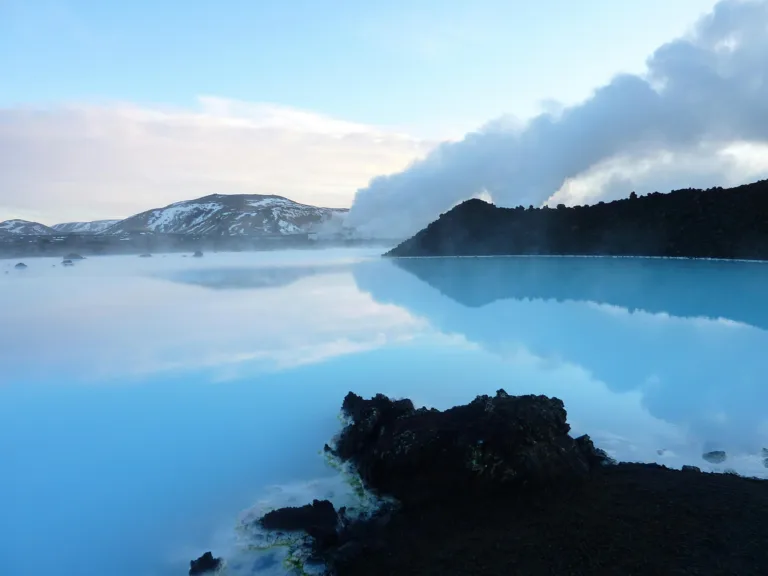Determining the safest countries in the world can vary depending on the criteria such as crime rates, political stability, natural disaster risks, and healthcare quality. However, many global indexes, such as the Global Peace Index (GPI) published by the Institute for Economics and Peace, consistently rank certain countries as the safest. Here are ten of the safest countries in the world:
1.Iceland
2.Denmark
3.Ireland
4.New Zealand
5.Austria
6.Singapore
7.Portugal
8.Slovenia
9.Japan
10.Switzerland
1.Iceland
Iceland is often cited as the safest country in the world.
Low Crime Rates: Iceland has extremely low crime rates, including violent crimes. The small population, strong community ties, and high standard of living contribute to this peaceful environment.
Political Stability: Iceland enjoys a stable political environment with a well functioning democracy. There is minimal political unrest or corruption, contributing to a sense of security among its residents.
High Quality of Life: The country boasts a high standard of living, with excellent healthcare, education, and social services. The well-being of its citizens is a priority, reducing social tensions and crime.
Effective Law Enforcement: The Icelandic police force is highly professional and effective. Importantly, the police do not carry firearms, reflecting the low levels of violence and high levels of trust within society.
Strong Social Cohesion: Iceland has a small, close-knit population that values community and cooperation. This social cohesion fosters a supportive and secure environment.
Environmental Safety: While Iceland does experience natural events such as volcanic activity and earthquakes, the country is well prepared for such events with robust disaster response systems in place.
Respect for Human Rights: Iceland places a high value on human rights, equality, and personal freedoms. This respect for individual rights and social justice contributes to overall societal stability.
Low Military Presence: Iceland does not have a standing army, which reflects its peaceful stance and contributes to its low levels of militarization.
Tourist Safety: Iceland is a popular tourist destination known for its safety. Visitors can travel around the country with minimal risk, which also enhances the sense of security.
Community and Trust: There is a high level of trust in Icelandic society, both among citizens and towards institutions. This trust reduces fear and enhances the overall sense of safety.
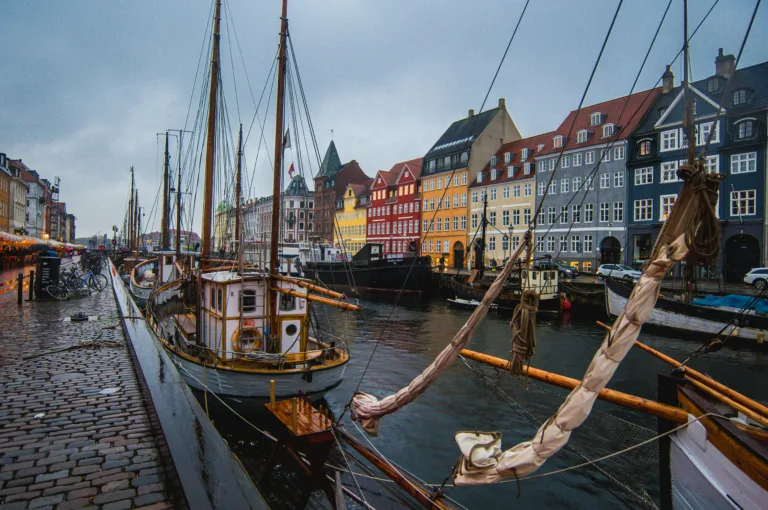
2.Denmark
Denmark is frequently ranked as one of the safest countries in the world.
Low Crime Rates: Denmark has low levels of crime, including violent crimes, making it a safe place for residents and visitors alike. Petty crimes like pickpocketing are also relatively rare.
Political Stability: Denmark enjoys a high degree of political stability with a well functioning democratic system. The country has minimal political unrest, corruption, and political violence.
High Quality of Life: The Danish social welfare system ensures a high standard of living for its citizens. With excellent healthcare, education, and social services, residents enjoy a high quality of life, which contributes to social stability and safety.
Strong Social Cohesion: Denmark has a cohesive society with strong community ties and a high level of social trust. This social cohesion helps in maintaining low crime rates and a secure environment.
Effective Law Enforcement: The Danish police force is well trained, efficient, and trusted by the public. The presence of a competent and respected police force contributes to the country’s overall safety.
Respect for Human Rights: Denmark is known for its strong commitment to human rights, equality, and social justice. These values foster a society where individuals feel safe and respected.
Comprehensive Welfare System: Denmark’s comprehensive welfare system supports citizens in various aspects of life, reducing social inequalities and tensions that can lead to crime and unrest.
Low Levels of Poverty: The country has low levels of poverty and unemployment, reducing economic driven crimes and contributing to overall societal stability.
Inclusive Society: Denmark values inclusivity and diversity, promoting policies that integrate immigrants and minority groups, which helps maintain social harmony.
Environmental Safety: Denmark is also committed to environmental sustainability, which contributes to a high quality of life and overall safety. The country has robust measures in place to deal with natural disasters, making it a safe place environmentally as well.
Safe for Tourists: Denmark is a popular destination for tourists who find it safe to travel around the country. Tourist areas are well monitored, and the general safety of the country enhances its attractiveness as a travel destination.
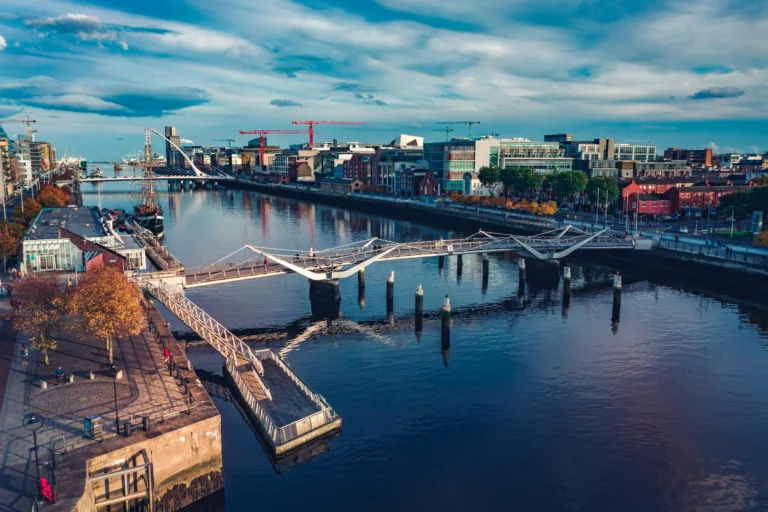
3.Ireland
Ireland is one of the safest countries in the world.
Low Crime Rates: Ireland has relatively low crime rates, particularly when it comes to violent crime. Petty crimes do occur, as they do in any country, but overall, Ireland is considered very safe for both residents and visitors.
Political Stability: Ireland enjoys a stable political environment with a well established democratic system. Political unrest and corruption are minimal, contributing to a secure and predictable living environment.
High Quality of Life: Ireland offers a high standard of living with excellent healthcare, education, and social services. This contributes to societal stability and personal safety.
Effective Law Enforcement: The Irish police force, known as An Garda Síochána, is professional, well trained, and generally well regarded by the public. The presence of an efficient and trusted police force enhances the overall sense of safety.
Social Cohesion: Ireland has strong community ties and a high level of social trust. People often feel a sense of belonging and mutual support within their communities, which contributes to a lower crime rate and a safer society.
Respect for Human Rights: Ireland is known for its commitment to human rights, equality, and social justice. These values create an environment where individuals feel safe and respected.
Comprehensive Welfare System: The country’s welfare system supports citizens in various aspects of life, reducing social inequalities and tensions that can lead to crime and unrest.
Low Levels of Poverty: Ireland has relatively low levels of poverty and unemployment, which reduces economic driven crimes and contributes to overall societal stability.
Environmental Safety: Ireland is relatively free from natural disasters, contributing to its overall safety. The country’s commitment to environmental protection also enhances the quality of life and personal safety.
Tourist Safety: Ireland is a popular tourist destination known for its friendly and welcoming atmosphere. Visitors often report feeling safe while traveling throughout the country.
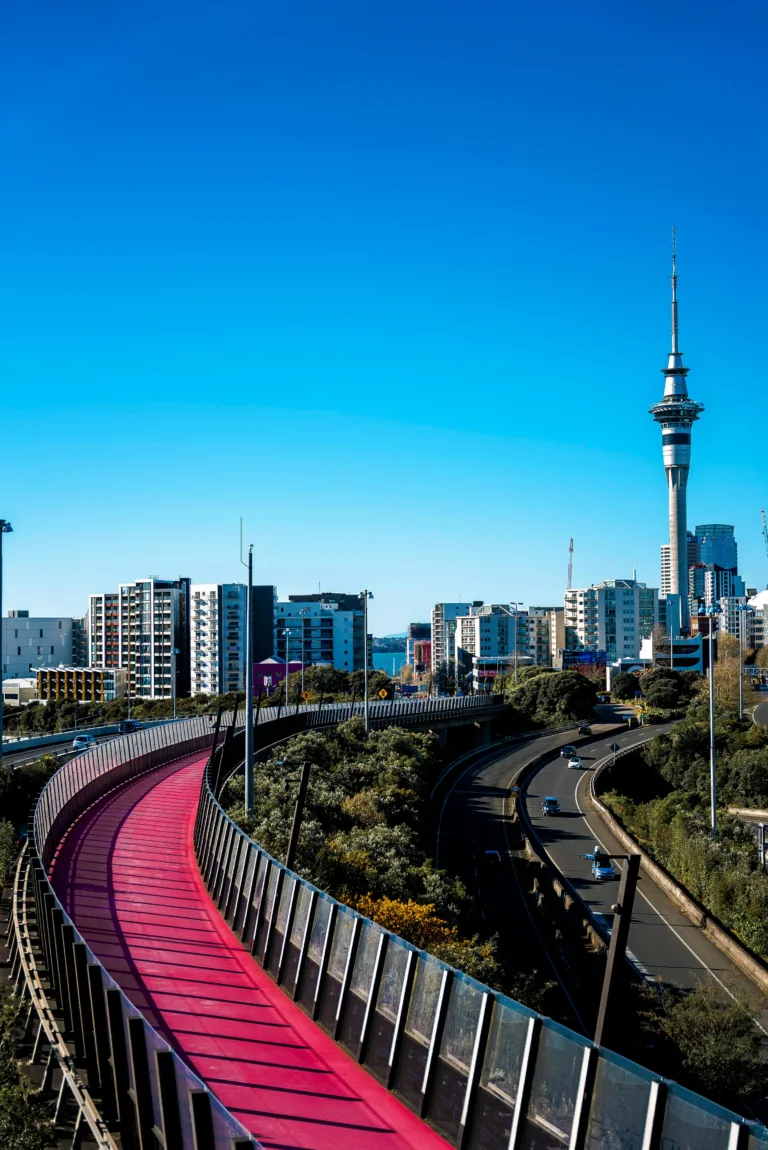
4.New Zealand
New Zealand is consistently ranked as one of the safest countries in the world.
Low Crime Rates: New Zealand has low overall crime rates, particularly in terms of violent crime. While petty crimes like theft can occur, serious crimes are relatively rare.
Political Stability: The country enjoys a stable political environment with a well functioning democratic system. There is minimal political unrest or corruption, contributing to a secure atmosphere.
High Quality of Life: New Zealand offers a high standard of living, with excellent healthcare, education, and social services. This high quality of life contributes to societal stability and personal safety.
Effective Law Enforcement: The New Zealand Police force is professional, well trained, and generally well regarded by the public. The presence of an efficient and trusted police force enhances the overall sense of safety.
Respect for Human Rights: New Zealand is known for its commitment to human rights, equality, and social justice. These values create an environment where individuals feel safe and respected.
Comprehensive Welfare System: The country’s welfare system supports citizens in various aspects of life, reducing social inequalities and tensions that can lead to crime and unrest.
Low Levels of Poverty: New Zealand has relatively low levels of poverty and unemployment, which reduces economic driven crimes and contributes to overall societal stability.
Tourist Safety: New Zealand is a popular tourist destination known for its stunning natural landscapes and friendly, welcoming atmosphere. Visitors often report feeling safe while traveling throughout the country.

5.Austria
Austria is one of the safest countries in the world.
Low Crime Rates: Austria has low overall crime rates, particularly when it comes to violent crime. Petty crimes, such as pickpocketing, do occur but are less frequent compared to many other countries.
Political Stability: Austria enjoys a stable political environment with a well established democratic system. Political unrest and corruption are minimal, which enhances the sense of security among residents.
High Quality of Life: Austria offers a high standard of living with excellent healthcare, education, and social services. These factors contribute to societal stability and personal safety.
Effective Law Enforcement: The Austrian police force is professional, well trained, and generally well regarded by the public.
Social Cohesion: Austria has strong community ties and a high level of social trust. The social fabric of the country is strong, with citizens often participating in community activities and supporting each other.
Respect for Human Rights: Austria is known for its commitment to human rights, equality, and social justice. These values create an environment where individuals feel safe and respected.
Low Levels of Poverty: Austria has relatively low levels of poverty and unemployment, which reduces economic driven crimes and contributes to overall societal stability.
Environmental Safety: Austria is not prone to major natural disasters, which adds to its safety. The country has beautiful, well preserved natural landscapes, and efforts are made to protect the environment.
Tourist Safety: Austria is a popular tourist destination known for its rich cultural heritage, beautiful landscapes, and safe cities. Visitors often report feeling safe while traveling throughout the country.
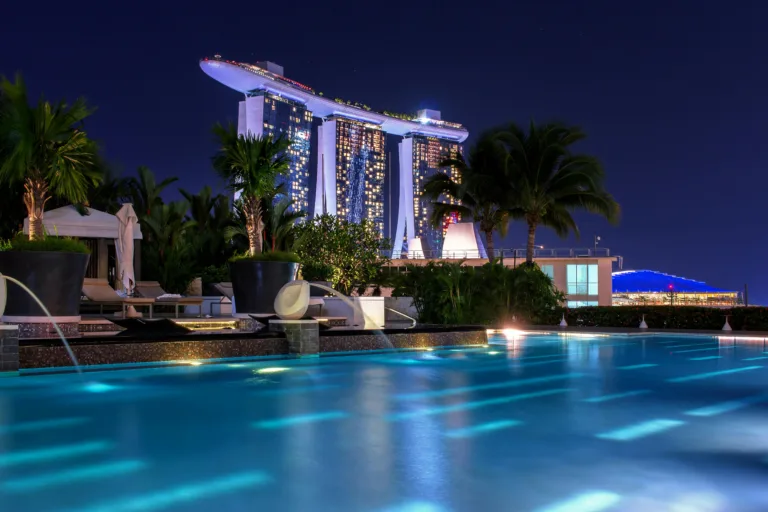
6.Singapore
Singapore is one of the safest countries in the world.
Low Crime Rates: Singapore has one of the lowest crime rates globally. Violent crime is extremely rare, and petty crimes such as theft are uncommon. The strict enforcement of laws and the effectiveness of the police force play significant roles in maintaining these low crime rates.
Strict Laws and Regulations: Singapore is known for its stringent laws and regulations. The government enforces strict penalties for various offenses, including vandalism, drug trafficking, and other serious crimes. This creates a strong deterrent against criminal behavior.
Efficient Law Enforcement: The Singapore Police Force is highly professional, well trained, and effective. The presence of visible and approachable police officers throughout the city state enhances the sense of security among residents and visitors.
High Quality of Life: Singapore offers a high standard of living, with excellent healthcare, education, and social services. These factors contribute to societal stability and personal safety.
Political Stability: Singapore enjoys a stable political environment with a well functioning government. There is minimal political unrest or corruption, contributing to a secure atmosphere.
Social Cohesion: Singapore has strong community ties and a high level of social trust. The government’s efforts to promote racial and religious harmony through policies and initiatives help maintain social cohesion.
Technological Advancements: Singapore leverages advanced technology for surveillance and security purposes. The use of CCTV cameras and other smart technologies helps monitor public spaces and prevent crime.
Economic Prosperity: Singapore’s strong economy and low unemployment rates reduce economic driven crimes. The overall prosperity of the nation contributes to social stability.
Respect for Human Rights: While Singapore has strict laws, it also emphasizes the importance of human rights and social justice. The government’s commitment to maintaining a safe and fair society ensures that individuals feel secure.
Safe for Tourists: Singapore is a major tourist destination known for its cleanliness, orderliness, and safety. Tourists often report feeling safe while exploring the city state, whether during the day or at night.
Public Infrastructure: The well developed public infrastructure, including efficient public transportation and well maintained public spaces, contributes to the overall safety and comfort of residents and visitors.
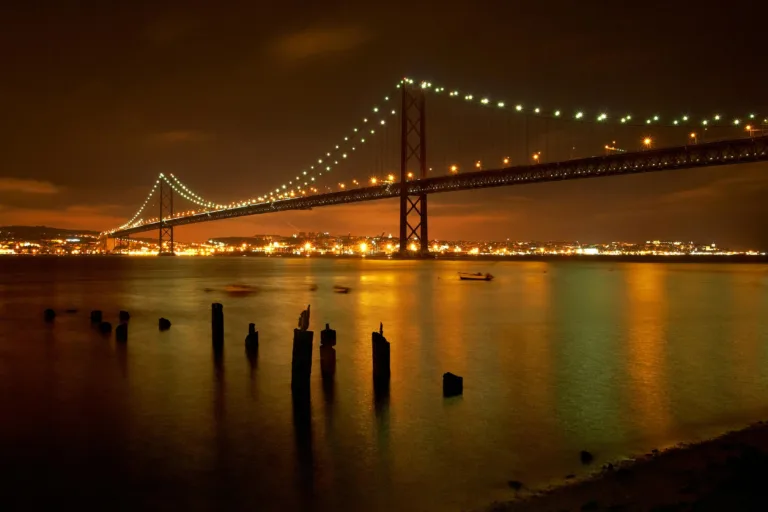
7.Portugal
Portugal is one of the safest countries in the world.
Low Crime Rates: Portugal has low overall crime rates, particularly when it comes to violent crime. Petty crimes, such as pickpocketing, can occur, especially in tourist areas, but serious crimes are relatively rare.
Political Stability: Portugal enjoys a stable political environment with a well functioning democratic system. There is minimal political unrest, which contributes to the overall sense of security.
High Quality of Life: Portugal offers a high standard of living with excellent healthcare, education, and social services.
Effective Law Enforcement: The Portuguese police force is professional, well trained, and generally well regarded by the public. Their presence and efficiency help maintain a safe environment.
Strong Social Cohesion: Portugal has strong community ties and a high level of social trust. The sense of community and mutual support within neighborhoods contributes to a lower crime rate and a safer society.
Respect for Human Rights: Portugal is known for its commitment to human rights, equality, and social justice. These values create an environment where individuals feel safe and respected.
Comprehensive Welfare System: Portugal’s welfare system supports citizens in various aspects of life, reducing social inequalities and tensions that can lead to crime and unrest.
Low Levels of Poverty: Although Portugal has faced economic challenges, it has relatively low levels of severe poverty and unemployment, which helps reduce economic driven crimes.
Environmental Safety: Portugal is relatively free from natural disasters, contributing to its overall safety. The country’s infrastructure is designed to handle environmental risks effectively.
Tourist Safety: Portugal is a popular tourist destination known for its beautiful landscapes, rich history, and friendly people. Visitors often report feeling safe while traveling throughout the country.

8.Slovenia
Slovenia is one of the safest countries in the world.
Low Crime Rates: Slovenia consistently reports low crime rates, including both violent and property crimes. The country’s relatively small population and strong rule of law contribute to its safety.
Political Stability: Slovenia enjoys a stable political environment with a well established democratic system. Political unrest and corruption are minimal, which enhances the overall sense of security.
High Quality of Life: Slovenia offers a high standard of living with excellent healthcare, education, and social services. The country’s focus on social welfare contributes to societal stability and personal safety.
Strong Social Cohesion: Slovenia has strong community ties and a high level of social trust. The sense of community and mutual support within neighborhoods contributes to a lower crime rate and a safer society.
Respect for Human Rights: Slovenia is known for its commitment to human rights, equality, and social justice. These values create an environment where individuals feel safe and respected.
Comprehensive Welfare System: Slovenia’s welfare system supports citizens in various aspects of life, reducing social inequalities and tensions that can lead to crime and unrest.
Environmental Safety: Slovenia is relatively free from natural disasters, contributing to its overall safety. The country’s beautiful landscapes and well preserved natural areas also enhance safety.
Tourist Safety: Slovenia is a popular tourist destination known for its stunning landscapes, rich cultural heritage, and outdoor activities. Visitors often report feeling safe while exploring the country.
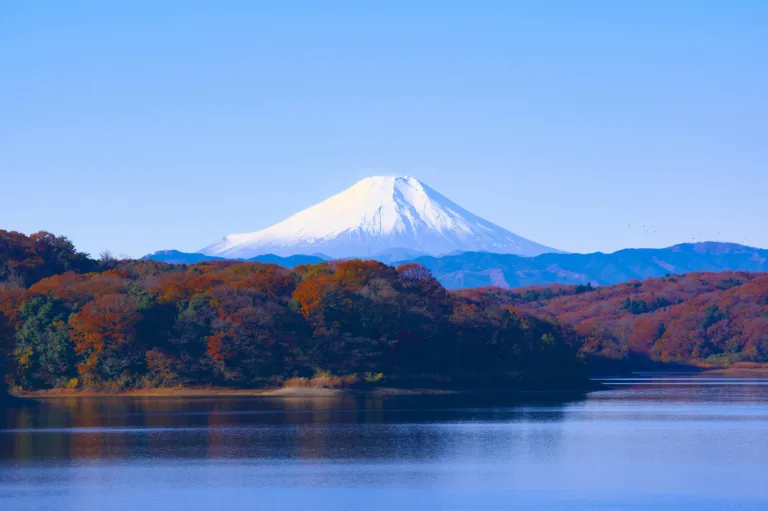
9.Japan
Japan is one of the safest countries in the world.
Low Crime Rates: Japan consistently reports low crime rates, including both violent and property crimes. The country’s strict laws, efficient law enforcement, and strong social norms contribute to its safety.
Political Stability: Japan enjoys a stable political environment with a well established democratic system. Political unrest and corruption are minimal, which enhances the overall sense of security.
High Quality of Life: Japan offers a high standard of living with excellent healthcare, education, and social services. The country’s focus on social welfare contributes to societal stability and personal safety.
Effective Law Enforcement: The Japanese police force is professional, well trained, and respected. Their presence and efficiency help maintain public safety and order.
Respect for Human Rights: Japan is known for its commitment to human rights, equality, and social justice. These values create an environment where individuals feel safe and respected.
Tourist Safety: Japan is a popular tourist destination known for its rich culture, traditions, and safety. Visitors often report feeling safe while exploring the country’s cities and rural areas.
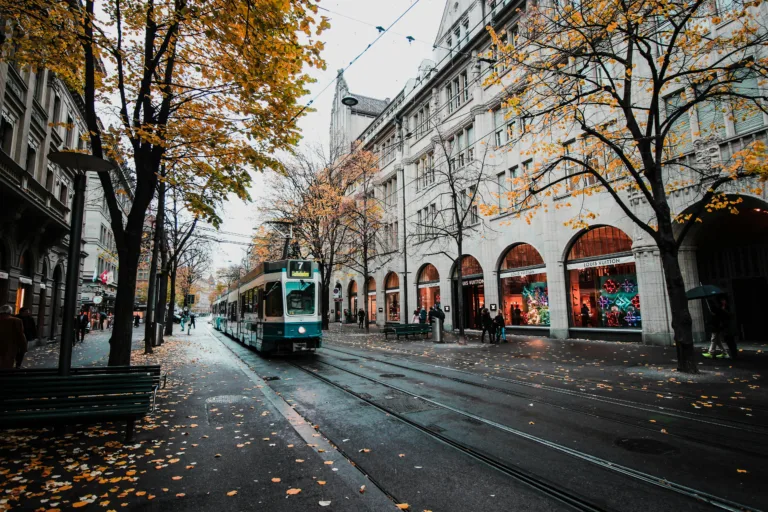
10.Switzerland
Switzerland is widely regarded as one of the safest countries in the world.
Low Crime Rates: Switzerland consistently reports low crime rates, including both violent and property crimes. The country’s strong rule of law, efficient law enforcement, and high levels of social cohesion contribute to its safety.
Political Stability: Switzerland enjoys a stable political environment with a long tradition of neutrality and democratic governance. Political unrest and corruption are minimal, which enhances the overall sense of security.
High Quality of Life: Switzerland offers a high standard of living with excellent healthcare, education, and social services. The country’s focus on social welfare contributes to societal stability and personal safety.
Effective Law Enforcement: The Swiss police force is professional, well trained, and respected. Their presence and efficiency help maintain public safety and order.
Strong Social Cohesion: Switzerland has strong community ties and a high level of social trust. The sense of community and mutual support within neighborhoods contribute to a lower crime rate and a safer society.
Respect for Human Rights: Switzerland is known for its commitment to human rights, equality, and social justice. These values create an environment where individuals feel safe and respected.
Comprehensive Welfare System: Switzerland’s welfare system supports citizens in various aspects of life, reducing social inequalities and tensions that can lead to crime and unrest.
Inclusive Society: Switzerland promotes inclusivity and has policies that support the integration of immigrants and minority groups, helping to maintain social harmony.
Environmental Safety: Switzerland is relatively free from natural disasters, contributing to its overall safety. The country’s well maintained infrastructure and disaster preparedness also enhance safety.
Tourist Safety: Switzerland is a popular tourist destination known for its stunning landscapes, outdoor activities, and safety. Visitors often report feeling safe while exploring the country’s cities, towns, and natural attractions.

